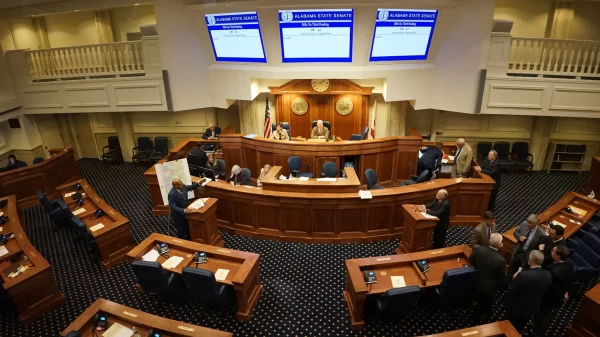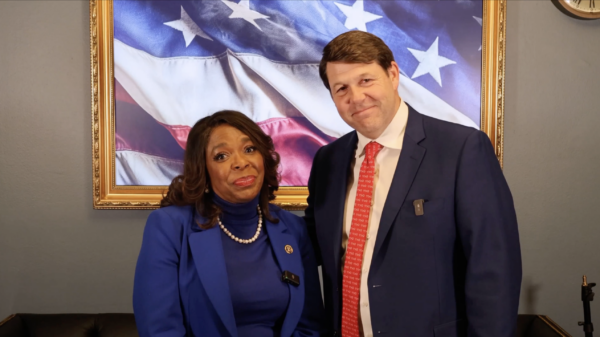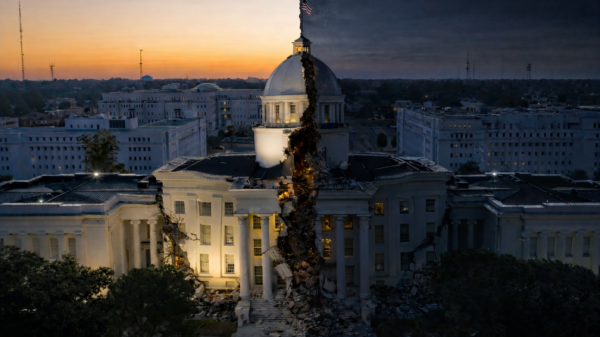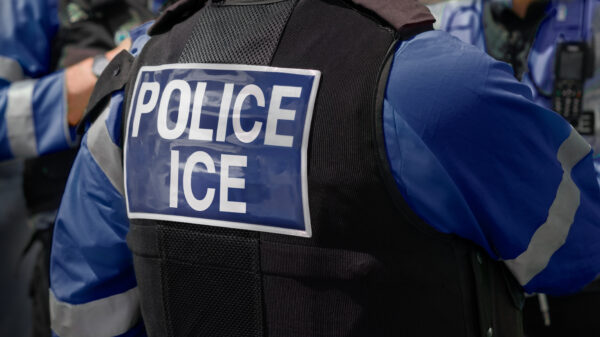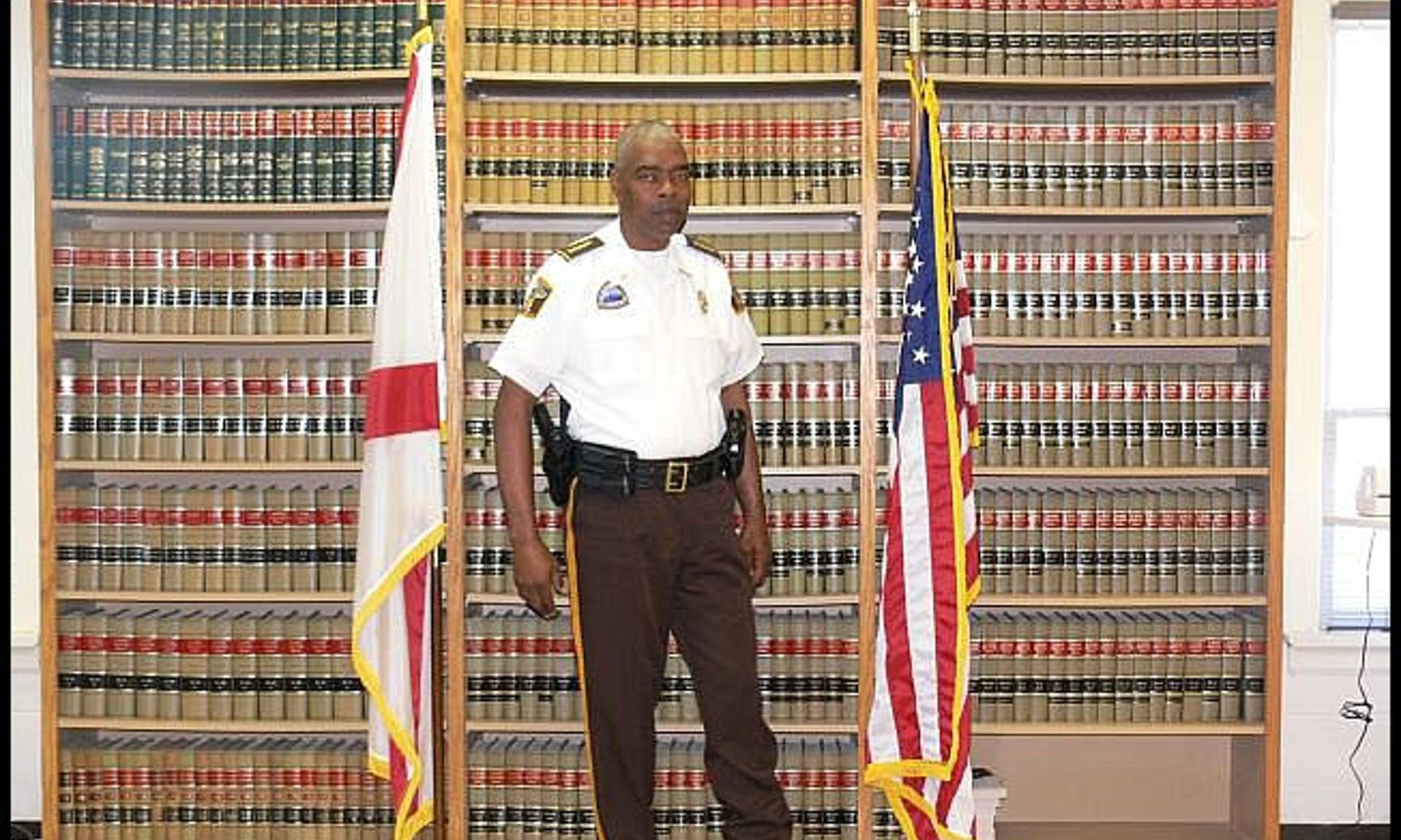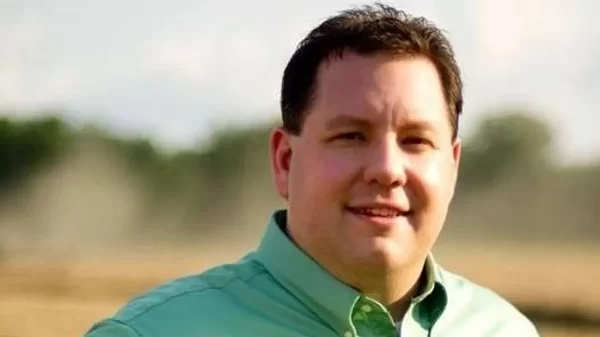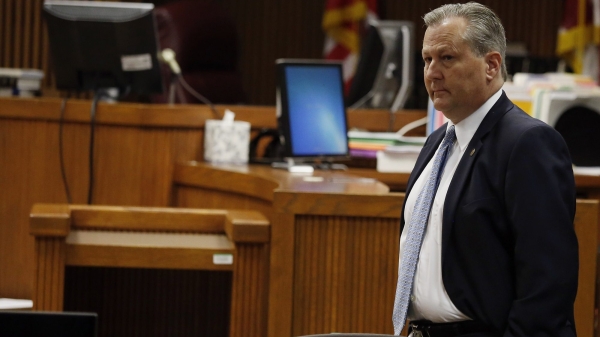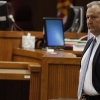By Bill Britt
Alabama Political Reporter
MONTGOMERY—Speaker Mike Hubbard’s attorney, J. Mark White, issued a subpoena back in March for Attorney General Luther Strange to testify in an evidentiary hearing that never took place.
Hubbard, who is charged by the State with 23 felonies, asked that Strange testify on a number of issues, including why he had appointed W. Van Davis to act on his behalf in the Lee County Grand Jury investigation.
Hubbard also subpoenaed Gov. Robert Bentley and the Custodian of Records for the Alabama Ethic Commission. Judge Walker ruled in favor of the State’s motion to quash the subpoena for Bentley and the Custodian, but did allow for the defense to question Strange in writing, and limited the questions as to Davis’ appointment.
The 53-question interrogatory with Strange’s answers was filed with the court on Wednesday, and focuses on why Strange appointed Davis to oversee the criminal investigation into Hubbard.
White has filed motions to have the case against Hubbard dismissed, claiming that Strange lacked the authority to have Davis act in his stead. This is a tactic that attorney Bill Baxley tried without success in the Rep. Barry Moore case.
When asked why he recused himself from the investigation Strange wrote, “The investigation concerned Mr. Hubbard’s potential misappropriation of funds when he was the Chairman of the Republican Party through his business, Craftmaster. My campaign used Craftmaster’s printing services.” He also states that the reason for his then Chief Deputy’s recusal was because, “Kevin Turner worked on my campaign.”
White tries to make an issue out of Special Prosecution Division Chief Matt Hart speaking with radio host Dale Jackson. During Hart’s conversation (which Jackson recorded without Hart’s knowledge) Jackson asked, “Why did Luther recuse himself?” White wanted to know if Strange agreed with Hart’s characterization of his recusal, to which he answered, “The statement is materially correct.”
While arguing that Davis lacked the authority to prosecute Hubbard, White also tried to use the Jackson recording as proof of prosecutorial misconduct.
Hubbard’s attorneys also took issue with the term “Acting Attorney General,” asking what the procedures were for appointing someone to that position. Strange answered, “I asked Davis to assume the investigation pursuant to his powers and authority as a supernumerary district attorney as provided by Alabama Code §§ 12-17-184, 12-17-216, and 36-15-15.”
This section of code has been used by many AGs over the years, without controversy, to appoint District Attorneys to act on their behalf.
Strange later said, “I often ask district attorneys and supernumerary district attorneys to handle investigations or prosecutions when, for whatever reason, I believe their expertise or resources are needed.”
White also questioned Strange about his signature on the document giving Davis authority over the Hubbard investigation. Strange responded, “I personally signed the original letter represented by Exhibit A in my office on January 31, 2013, which is the date of the letter. I do not recall whether anyone saw me sign the document. Exhibit 1 to this response reflects that a signed copy of the letter was converted to pdf at 4pm on January 31, 2013 and saved to a computer in the Attorney General’s Office.”
In the interrogatory, White asks, “Are You aware of any discussions between any member of the Attorney General’s Office regarding backdating the document reflected in Exhibit A or backdating any document of any type, including but not limited to any commission, letter, or oath for Davis, Hart, and/or Duffey?”
Strange answered, “No.”
White has tried to accuse the State of backdating Davis’ appointment, but the meta data on Strange’s State computer proves White’s accusation to be false.
On several occasions, Strange reminded Hubbard’s defense that their questions, “Call[ed] for legal conclusion outside the scope of deposition.” He also objected to “[v]ague and confusing” questions as well as being “argumentative.”
Trial Judge Walker as well as Circuit Court Judge Christopher Walker have found that Davis was rightfully appointed. The State Supreme Court rejected a request for an opinion in the Moore case.













